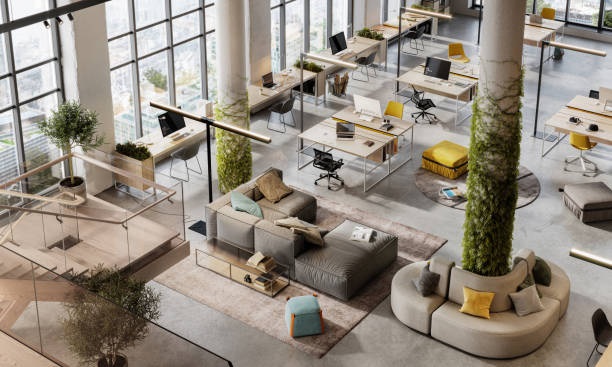
In today’s environmentally conscious world, businesses increasingly recognise the importance of sustainability, even when it comes to something as seemingly mundane as an office fitout. Sydney fitouts now has the opportunity to go beyond aesthetics and functionality, incorporating eco-friendly practices and materials to create a workspace that’s good for employees and the planet.
Embracing Sustainability: A Win-Win for Business and the Environment
Sustainable office fitouts offer a multitude of benefits for businesses. By prioritising eco-friendly choices, you can:
- Reduce your environmental impact: Minimising waste, utilising recycled materials, and incorporating energy-efficient solutions contribute to a smaller carbon footprint and a healthier planet.
- Boost employee well-being: Studies show that employees working in sustainable spaces experience improved morale, productivity, and overall satisfaction.
- Enhance brand image: Demonstrating a commitment to sustainability resonates with environmentally conscious consumers and stakeholders, strengthening your brand image.
- Potentially reduce costs: While the initial investment in sustainable materials may be slightly higher, long-term energy bills and waste disposal savings can offset those costs.
Guiding Principles for a Sustainable Fitout
So, how do you navigate the world of sustainable fitouts? Here are some key principles to guide your decision-making:
1. Design for Efficiency
- Optimise natural light: Utilise large windows and skylights to reduce reliance on artificial lighting.
- Implement energy-efficient systems: Choose LED lighting, smart thermostats, and water-saving fixtures.
- Promote thermal comfort: Consider passive cooling strategies like cross ventilation and green roofs.
2. Embrace Sustainable Materials
- Opt for recycled content: Look for furniture, flooring, and finishes made from plastic, wood, or metal.
- Explore renewable resources: Bamboo, cork, and sustainably sourced timber offer eco-friendly alternatives.
- Minimise waste: Choose modular furniture for flexibility and reusability, and repurpose existing elements when possible.
3. Reduce, Reuse, Recycle
- Implement a comprehensive waste management plan: Separate waste streams for recycling, composting, and proper disposal.
- Choose durable and repairable furniture: Opt for high-quality pieces that can be easily repaired or refurbished instead of replaced.
- Donate or sell unwanted furniture: Give pre-loved furniture a second life by donating it to charities or selling it online.
4. Foster a Culture of Sustainability
- Educate employees about sustainable practices: Encourage energy conservation, responsible waste disposal, and mindful resource usage.
- Partner with sustainability-focused suppliers: Look for fitout companies prioritising eco-friendly practices and materials.
- Continuously monitor and improve: Track your progress and identify areas for further improvement in your sustainability efforts.
Beyond the Fitout: Ongoing Sustainability Practices
Remember, a sustainable office is a journey, not a destination. While the fitout sets the stage, long-term commitment is essential. Here are some additional practices to consider:
- Encourage sustainable commuting: Offer cycling, walking, or public transportation incentives.
- Support local businesses: Source furniture, supplies, and catering from local, environmentally conscious companies.
- Reduce paper usage: Implement digital solutions for document management and communication.
- Integrate greenery: Plants improve air quality and create a more calming and productive work environment.
By embracing these principles and practices, you can create a fitout that is beautiful, functional, and environmentally responsible, contributing to a healthier planet and a more sustainable future for your business.






